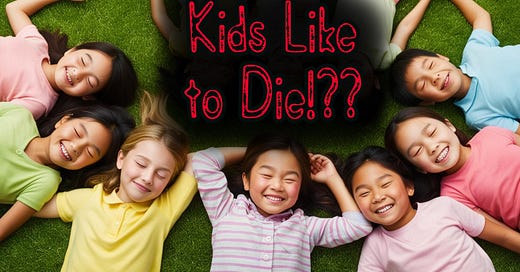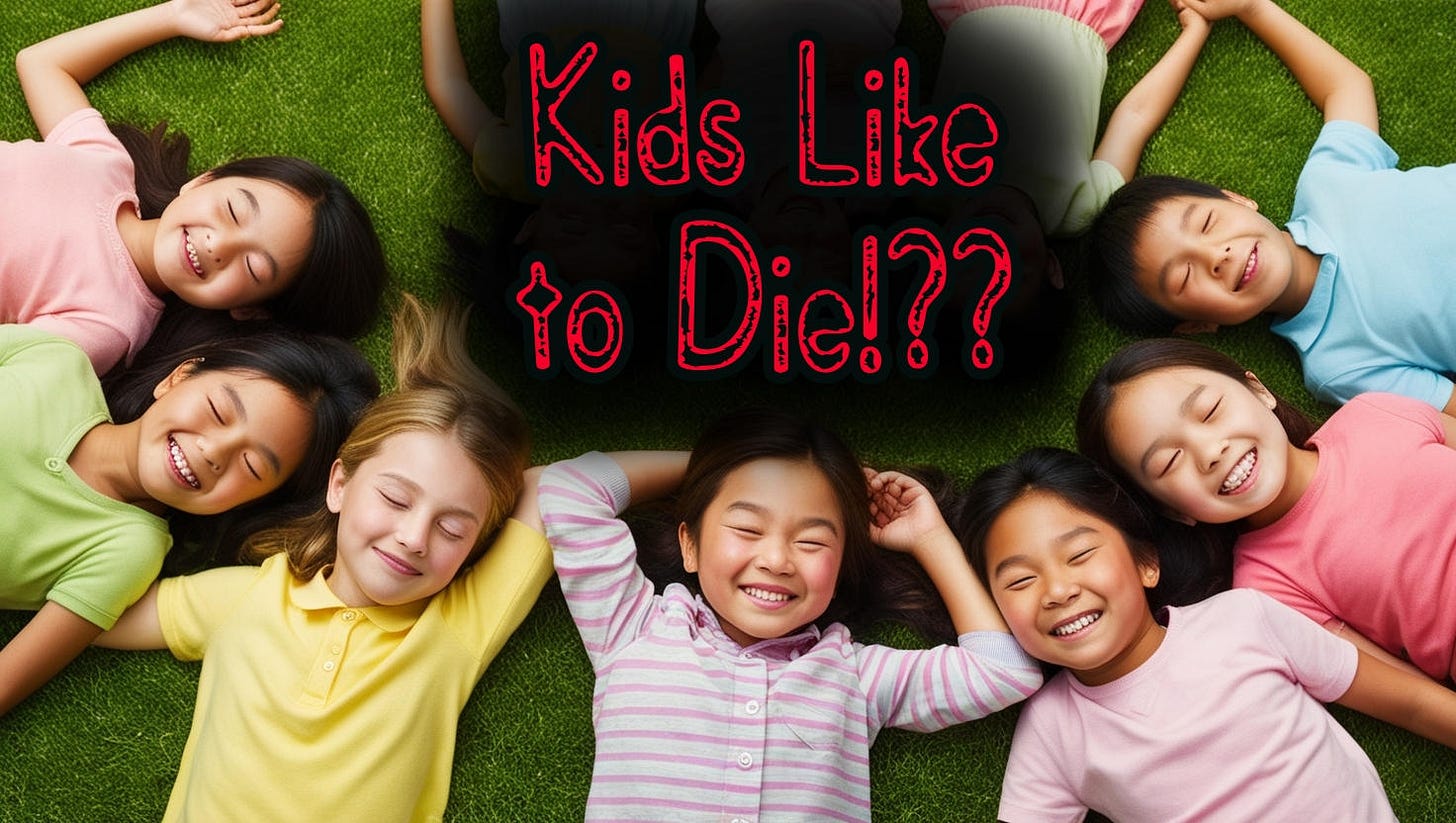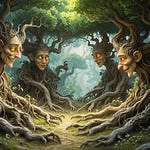One of the themes in children's dramatic play is the theme of death. Children's play involves death and there must be a reason for it. This play sends a signal of re-incarnation, a message that our consciousness goes on after the body dies. It represents the archetypal symbolism of death. Death, in the tarot, has a meaning of transformation. The children expressing their current paradigm of a need to transform and to individuate. They are also expressing our current paradigm of involution, which is the present appropriation of the death card in tarot. The control system of government is a mechanism for involution and entropy. Death is the god that is "worshipped" by those in power. Selfishness at all costs and destruction of the other. When we are able to find a way through and nurture our children to become free-thinking and free-spirited, we will create a free world without the current death system. The death card will become a symbol of evolution and new beginnings. What then will the children teach us through their dramatic play? Will "death-play" still bubble up at the frequency it currently does? One way to release the grip, that the death-card has on humanity now, is to read the true fairy tales to our children. The solution is to read fairy tales in all their death and glory.
Links
Article on Death Play from HealGrief.Org:
https://healgrief.org/children-death-play-normal/
Ordal, Carol C. (1984). Death as Seen in Books Suitable for Young Children.
https://journals.sagepub.com/doi/10.2190/W04T-7CAN-LT3B-XBQD
Mark Passio on the Tarot (watch this, then start his podcast from episode one!):
https://whatonearthishappening.com/podcast/667-woeih-show-218
Books
Pearce, Joseph Chilton. (1977). Magical Child: Rediscovering Nature's Plan for Our Children. E.P. Dutton.
https://archive.org/details/magicalchildredi0000pear/page/n5/mode/2up
Coward-Gibbs, Matt (Ed.). (2020). Death, Culture and Leisure: Playing Dead. Emerald Publishing.
https://www.amazon.com/Death-Culture-Leisure-Playing-Emerald/dp/1839090383
Tucker, Jim B., M.D. Life Before Life: A Scientific Investigation of Memories of Previous Lives. St. Martins Press.
https://www.amazon.com/Life-Before-Childrens-Memories-Previous/dp/031237674X
Plummer, Deborah. (2001). Helping Children to Build Self-Esteem. Jessica Kingsley Publishers.
https://uk.jkp.com/products/helping-children-to-build-selfesteem
Petros, Nicholas Paul. (1998). I Will Speak For The Children. Jade Publishing.
https://www.amazon.com/Will-Speak-Children-Nicholas-Petros/dp/1570873771
Mendizza, Michael & Pearce, Joseph Chilton. (2003). Magical Parent, Magical Child: The Art of Joyful Parenting. North Atlantic Books.
https://archive.org/details/magicalparentmagO000mend
Codd, Clara M. (1916). “The Fairies”. Theosophy for Very Little Children. Theosophical Publishing House.
https://www.theosophy.world/resource/ebooks/theosophy-very-little-children
Waite, A.E. (1910). The Pictorial Key to the Tarot.
https://sacred-texts.com/tarot/pkt/index.htm
Montessori, Maria. (2014). The Absorbent Mind. Sublime Books.
https://montessori150.org/maria-montessori/montessori-books/absorbent-mind
The Secret Kindergarten is live every Saturday 2.00pm-3.00pm Eastern Time on Revolution Radio (Studio A): https://www.revolution.radio/.
You can find us also on all main podcast platforms (Spotify, Apple Podcast, etc.) and on YouTube, Rumble and Odysee.














Share this post